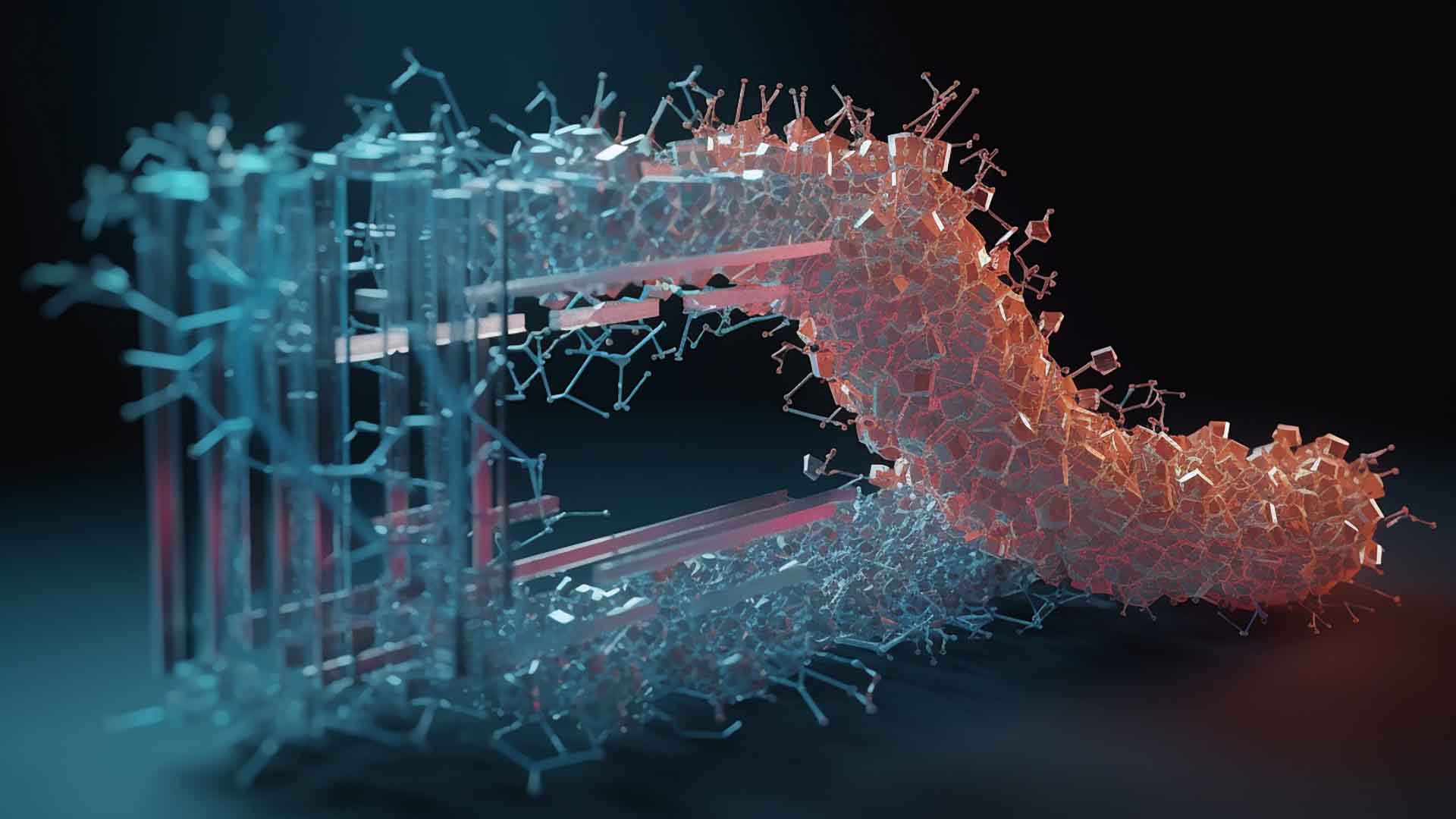Unveiling AI's Cutting Edge
Discover the Future Today with AI's Latest Breakthroughs
- Emerging Trends in AI: A 2023 Perspective
- Introduction
- AI's Growth and Impact in Biology and Robotics
- The Rising Capabilities of AI Chatbots: Case Study of Google's Bard
- AI's Self-Awareness Illusion
- AI and the Crucial Need for Regulation
- DeepMind: Bridging the Gap between AI and Neuroscience
- Protein Structure Prediction: A Leap Forward in Computational Biology
- Conclusion
- In the realm of AI, impossibility is merely a challenge.
- Faq
- Pros and Cons
- Resources
- Related Articles
Emerging Trends in AI: A 2023 Perspective
Introduction
Artificial Intelligence (AI) continues to transform the world in ways we could hardly imagine a decade ago. This technology is rapidly evolving, reshaping numerous industries and redefining what is possible. Let's delve into some of the major AI trends of 2023 and explore how they are revolutionizing our world.
AI's Growth and Impact in Biology and Robotics
Robots Learning Soccer? The New Norm
Imagine a world where robots not only carry out mundane tasks but also engage in complex activities such as playing soccer. AI is making this possible. By continuously learning, these tireless machines are developing superhuman abilities in specialized tasks, leading to remarkable achievements that were once the realm of science fiction.
AI: The Game-Changer in Biology
AI has proven to be a game-changer in the field of biology, tackling problems that were once deemed impossible to solve. With its ability to analyze vast amounts of data and identify patterns beyond human capabilities, AI is pushing the boundaries of biological research and medical applications, delivering breakthroughs at an unprecedented pace.
The Rising Capabilities of AI Chatbots: Case Study of Google's Bard
As AI evolves, so does its ability to interact with humans. Google's AI chatbot, Bard, is a prime example. In mere seconds, Bard can create deeply human-like narratives that showcase the incredible potential of AI in understanding and replicating human language. However, while Bard's outputs can seem strikingly sentient, it's important to remember that it's not self-aware, but rather predicting probable words based on its extensive learning from internet data.
Bard: The Master of "Hallucination"
Interestingly, AI can exhibit very human traits, including errors. Bard, for instance, sometimes references non-existent books in its writings, a phenomenon known in the AI industry as "hallucination". As we continue to advance AI, addressing these hallucinations and further refining AI outputs will be a key focus.
AI's Self-Awareness Illusion
As AI chatbots like Bard become more sophisticated, they can sometimes give the impression of being sentient or self-aware. It's crucial to understand that this apparent self-awareness is an illusion. AI has no feelings or consciousness; it's simply reflecting patterns learned from human-authored content.
AI and the Crucial Need for Regulation
With AI development accelerating at breakneck speed, the need for effective regulation is becoming increasingly urgent. Google CEO Sundar Pichai has advocated for rapid adaptation in response to this growth, including regulations for AI in the economy, laws that punish abuse, and international treaties to ensure global AI safety. The race to AI superiority is on, and we must ensure it's a race we can control.
DeepMind: Bridging the Gap between AI and Neuroscience
DeepMind, a subsidiary of Google, is at the forefront of integrating elements of human brain function into AI. By replicating neural network functions such as memory, imagination, and planning, DeepMind is blurring the lines between human cognition and artificial intelligence.
Protein Structure Prediction: A Leap Forward in Computational Biology
Perhaps one of the most impressive achievements of DeepMind is the creation of an AI program that can predict the 3D structure of proteins. This process, which would normally take a scientist their entire PhD to determine for a single protein, can now be achieved much more rapidly, accelerating developments in medical research and biotechnology.
Conclusion
The AI landscape of 2023 is brimming with exciting advancements and infinite possibilities. From self-teaching robots to AI chatbots that weave human-like narratives, AI continues to surpass our expectations. Yet, as we marvel at these developments, it's critical that we also navigate the challenges theybring, particularly in the realm of regulation and ethics.
AI is not a distant future concept; it's here, and it's transforming our world. As we embrace this technology, let's also ensure we guide its growth responsibly, fostering innovations that benefit all of humanity. As we look ahead, the potential of AI is vast, but so too is our responsibility to harness it wisely. So let's stay informed, stay engaged, and shape a future where AI serves as a tool for progress and prosperity.
As we journey through this brave new world of AI, remember this: the future is not something that happens to us, it's something we create. So let's create a future where AI unlocks new potential, drives positive change, and propels us toward a brighter tomorrow.
Together, we can shape the future of AI. Let's make it a future we can all be proud of.

In the realm of AI, impossibility is merely a challenge.
Faq
-
Q: What are the latest breakthroughs in Artificial Intelligence?
A: The latest breakthroughs in AI include Google's chatbot, Bard, that can generate human-like text, and AI's application in biology for predicting protein structures. AI has also made strides in self-learning abilities, as demonstrated by AI-powered robots teaching themselves to play soccer. -
Q: How is Google's Bard changing the landscape of AI?
A: Google's Bard is a significant development in the field of AI due to its ability to generate deeply human-like text. It learns from almost everything on the internet, creating a model of what language looks like and predicting the most probable words based on what it's learned. This development has brought AI one step closer to mimicking human-like consciousness and creativity, although it's important to note that Bard isn't self-aware. -
Q: What is protein structure prediction and how does it leverage AI?
A: Protein structure prediction involves determining the three-dimensional structure of a protein molecule based on its amino acid sequence. This is crucial for understanding the function of the protein and its role in various biological processes. AI, specifically DeepMind's program, has been used to predict these structures much more quickly than traditional methods. In fact, DeepMind has predicted the structures of all the 200 million proteins known to science in a year, a feat that would take an average scientist their entire PhD to achieve for a single protein. -
Q: How are AI developments impacting our daily lives?
A: AI developments are significantly impacting our lives in various ways. They're being used in everything from digital assistants like Google's Bard, to advanced predictive models in biology that can expedite the development of vaccines and antibiotics. Moreover, AI has also found applications in environmental solutions, such as developing new enzymes to eat plastic waste. -
Q: What does the future hold for AI?
A: The future of AI holds immense potential. It is expected to continue revolutionizing various sectors, from healthcare to environment to technology. However, the rapid advancement of AI also brings along challenges. There are ongoing debates and discussions around AI ethics, regulations, and safety measures. Ensuring that AI developments are directed towards the betterment of humanity while mitigating potential risks will be a key aspect of its future.
Pros and Cons
Pros:
- Revolutionizing various sectors with innovative solutions
- Potential to solve complex problems faster and more efficiently
- Unprecedented developments in narrow AI capabilities
Cons:
- Risk of AI-generated misinformation ('hallucination')
- Ethical and regulatory considerations are crucial
- Advanced AI systems are still in the experimental phase
Resources
- "Age of Invisible Machines" is a highly acclaimed guide to conversational AI authored by Robb Wilson, the CEO of OneReach.ai, along with co-author Josh Tyson. Drawing from their extensive expertise in the field, this book offers valuable insights and a practical roadmap for organizations to future-proof themselves in the era of intelligent digital workers.
- "The ChatGPT Millionaire" is a comprehensive and accessible guide that reveals the untapped potential of ChatGPT for lucrative online ventures. Authored by Neil Dagger, this book provides step-by-step instructions on leveraging ChatGPT to create passive income, expedite project completion, and effortlessly generate engaging content.
- "The Age of AI" delves into the transformative impact of artificial intelligence on society, politics, and knowledge. Penned by three eminent thinkers—Henry A. Kissinger, Eric Schmidt, and Daniel Huttenlocher—this seminal work presents a roadmap to navigate our AI-influenced present and shape our future.
- "Impromptu: Expanding Humanity's Potential Through AI" is a collaborative work by Reid Hoffman and GPT-4, exploring the boundless possibilities of AI, particularly Large Language Models. This book addresses the potential, challenges, opportunities, and risks associated with utilizing AI to amplify human potential.
- "Artificial Intelligence and Generative AI for Beginners" simplifies the complex realm of AI, providing a concise overview of its history, mechanics, techniques, applications, and challenges. Authored by Michael Gordon Cohen, this introductory guide places a special emphasis on Generative AI and serves as a practical resource for acquiring foundational knowledge in the field.
